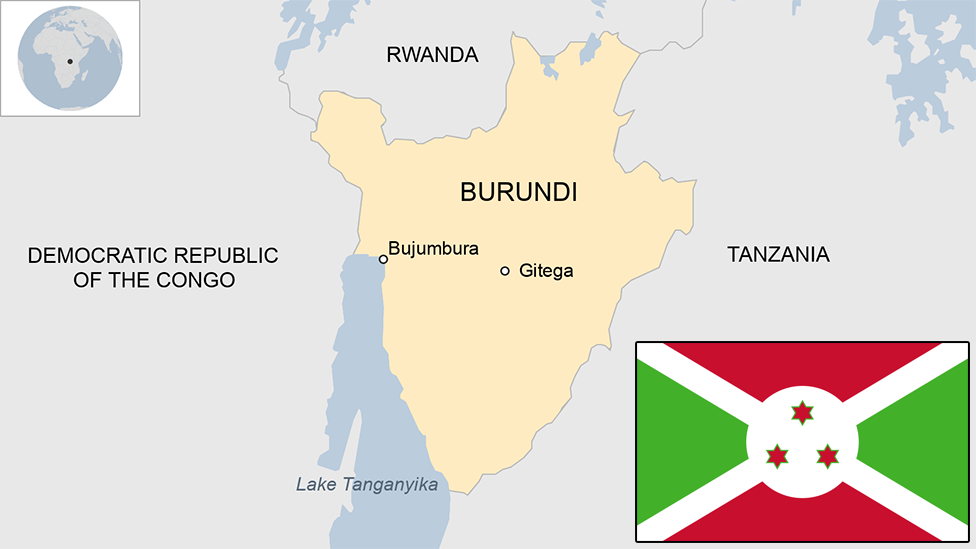Burundi students of closed university camp out at US embassy
- Published
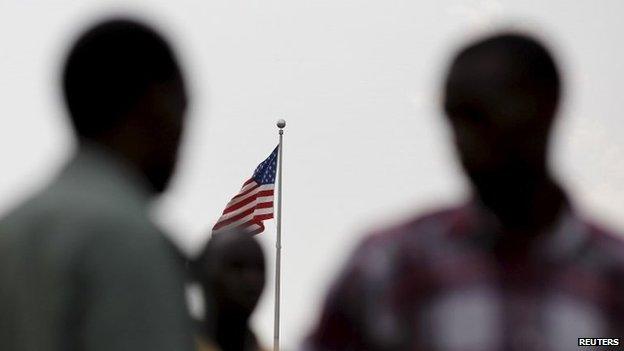
A senior US diplomat has urged President Nkrunziza not to seek a third term
Hundreds of students in Burundi have spent the night in front of the US embassy after their university was closed amid anti-government protests.
They told the BBC they went to the embassy as there was no security for them in the capital city Bujumbura.
Social media has been blocked, radio stations closed and protests banned.
People have been protesting since Sunday over President Pierre Nkurunziza's decision to stand for re-election in June.



The government closed the university on Thursday citing "insecurity".
Earlier on Thursday several hundred students tried to organise a march into the centre of Bujumbura. They wanted to stop the president from officially presenting his nomination papers to the electoral commission.
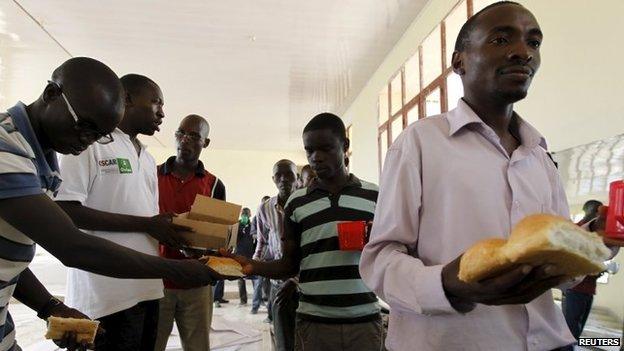
Volunteers handed out food rations to the students
The students told the BBC's Maud Jullien that the US embassy was the only place they felt safe and that they feared security forces were pursuing them.
She estimates around 500 students are outside the embassy.
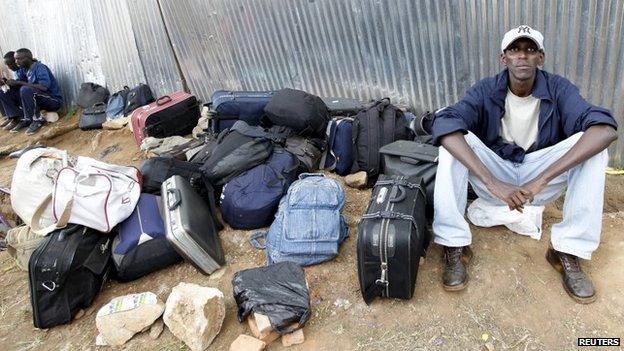
The students were forced out of the university with all their belongings
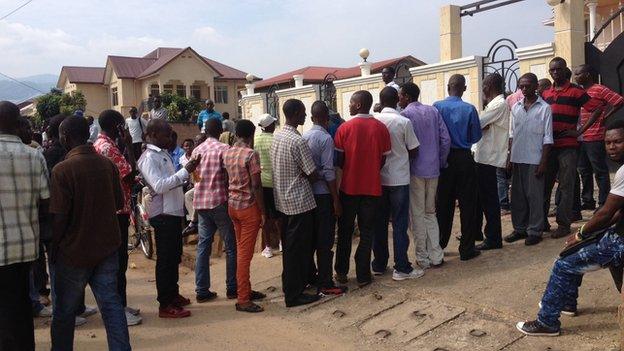
First thing in the morning, students were queuing outside the US embassy
The US has not reacted to their presence.
Senior US diplomat Tom Malinowski met Mr Nkurunziza on Thursday, and afterwards said he had warned that the situation in Burundi was "dangerous".
"Some of the measures that have been taken... to shut down social media, to suspend radio stations not only are wrong as a matter of principle but very counter-productive," he told journalists.
Rupert Colville from the UN human rights office also said on Friday that he was "deeply concerned" about the authorities' curtailing people's freedom of speech.
At least seven people have died amid the biggest protests Burundi has seen since the civil war ended in 2005.
In a Labour Day radio broadcast Mr Nkurunziza, a former rebel leader, warned of "severe sanctions" against protesters who are found to be behind an "insurrectional movement".
President Nkurunziza said there would be a judicial inquiry into the protests.
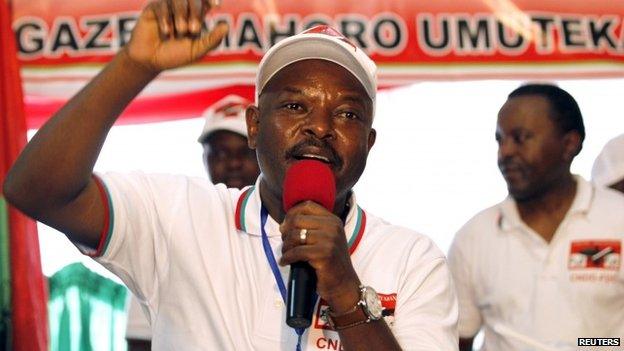
Mr Nkurunziza has already served two terms as president
Under the constitution, presidents can only be elected to two terms in office but Mr Nkurunziza's allies say his first term does not count as he was appointed by parliament.
Burundi's senate has announced that the constitutional court will examine the legality of the bid.
Mr Nkurunziza has been in power since 2005, when a 12-year civil war officially ended.
More than 300,000 people died in the conflict between the minority Tutsi-dominated army and mainly Hutu rebel groups, such as Mr Nkurunziza's CNDD-FDD.
- Published14 October 2015
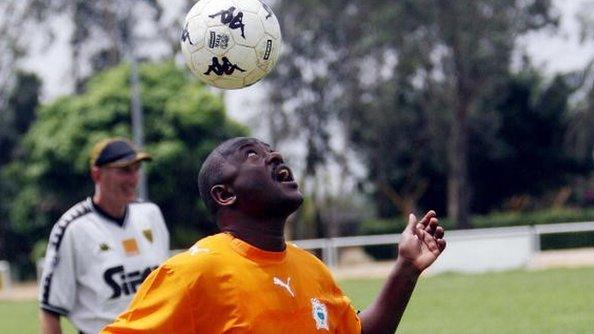
- Published20 January 2015
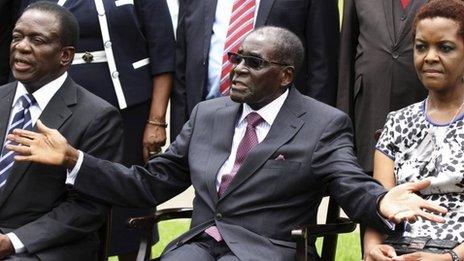
- Published16 June 2014

- Published31 July 2023
